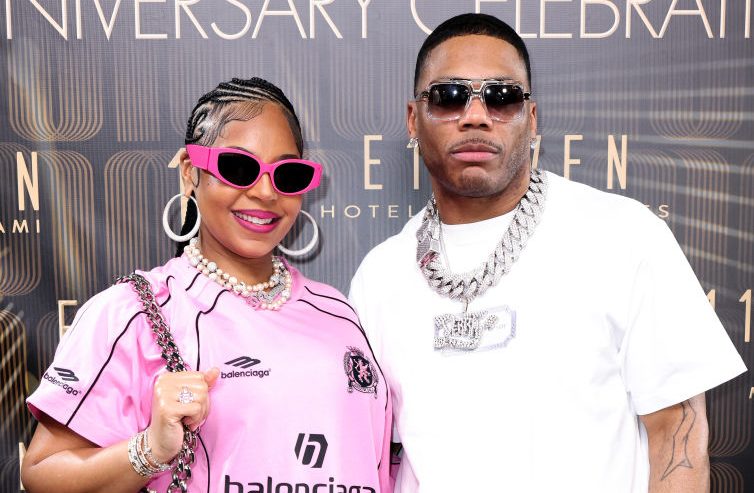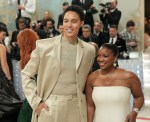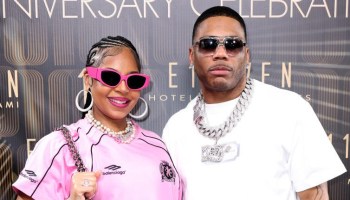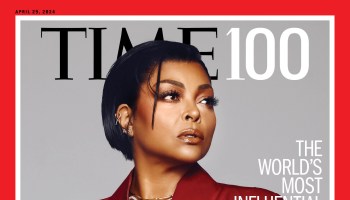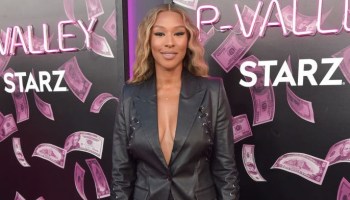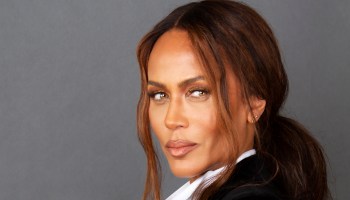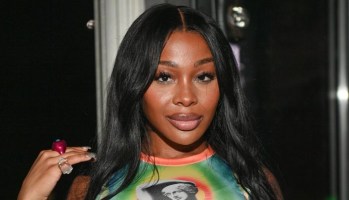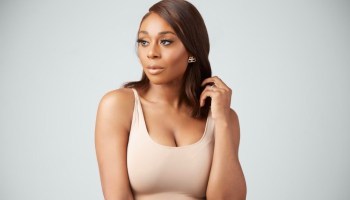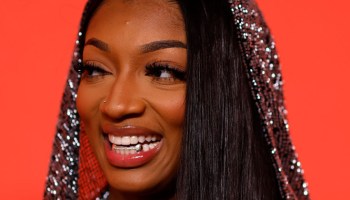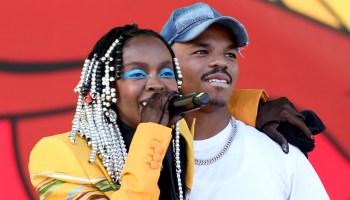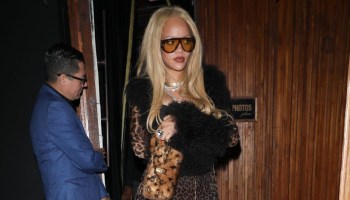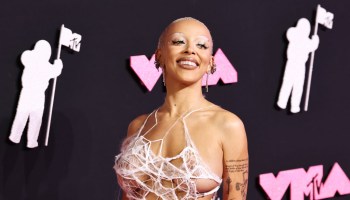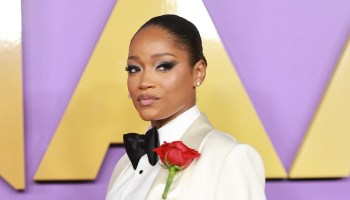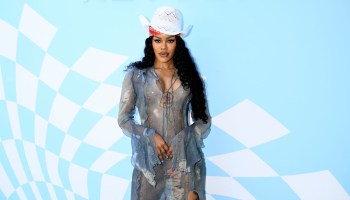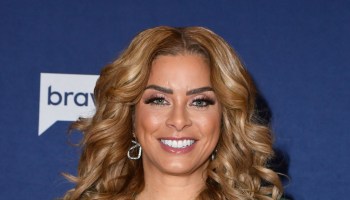Isaiah Washington is best known for his former role as Dr. Preston Burke on ABC’s hit medical drama “Grey’s Anatomy.” In 2007, he was fired from the TV series for using homophobic slurs, and now, six years later, he’s still looking for a second chance.
Washington is making his return to the acting world in the new film Blue Caprice, based on the D.C. Sniper case, as John Allen Muhammad — the man responsible for killing at least 10 innocent people with his seventeen-year-old partner, Lee Boyd Malvo, in October 2002.
MUST READ: Isaiah Washington Swagger Jacks The Pulpit In “The Undershepherd” [VIDEO]
MUST READ: Ohio School Apologizes For Banning Black Hair Styles + 7 Of The Worst Celeb Apologies
The 50-year-old movie star caught up with New York Magazine to talk about his chilling new role and what it was like to be blacklisted from Hollywood. Check out highlights from the interview below.
So, how did you and [director Alexandre Moors’s] find each other?
He found me, on Facebook. Apparently he’d been looking for me for months. I don’t have an agent, I don’t have a manager. The way I see it, the people who really want to find me can find me. The guy that says he’s my manager is really just a friend of mine — who’s a former agent. If something interesting came to me, fine, but I’ve been busy traveling the world — Turkey, Africa, Morocco. I’ve written a book, I’ve become a better husband and father because I’m home every day. My connection to the Hollywood world has only been through Facebook. My followers would say, “NBC is looking for you. Law and Order: L.A. is looking for you.” So I’d give the casting director a call, and they’d be like, “Is this really you?” Because they’re expecting to talk to an agent, and I haven’t had an agent in six years. I do all my calls. I negotiate my own deals.
Why have you opted out of having an agent?
Opted out?! I didn’t have a choice! I didn’t opt out. Who wants to hire a monster? The phone wasn’t ringing, bro. I didn’t want to leave Hollywood. But the way the system works is that if people believe that you’re a certain way, or they think you supposedly hate them … how can I expect them to take a call on my behalf if they’ve been led to believe that I’m this monster? And now, cut to: Now I’m playing a monster, and everybody wants to represent me and talk to me. [Laughs]
You gave one of the best performances I’ve ever seen in Clockers, and you were so strong in films like True Crime, Bulworth, and Out of Sight. Watching Blue Caprice, it felt nice to have that guy back.
I’ve always been that guy. I’m proud to say that I was that guy playing the character of Dr. Burke on Grey’s Anatomy. I’d never throw him under the bus. I would never say anything bad about that writing staff. They had so much respect for my film history. The average person in Hollywood just assumes that if you’re on a hit TV show, then that’s the first thing you’ve ever done. A lot of people thought that was the first thing I’d ever done, so when things went bad, a lot of people were like, “How dare he be so ungrateful? Off with his head!” But people who knew me from New York, from my career as a dancer — people who knew me from when I was auditioning for Alvin Ailey, before I got hurt — they were looking at the world, going, “You must be talking about the wrong guy. This is not that guy.” But my mistake was in trying to change that. In hindsight, you don’t fight fire with fire, and you definitely don’t try to correct something backstage at the Golden Globes. That is definitely not a smart idea. I’ll always regret that.
But things are changing now?
Think of it this way: The man that held $2.7 million from me begrudgingly, and walked me out the door at ABC, is the president of CW Network, which is now giving me an even bigger and better opportunity. I’m working with Patrik-Ian Polk on Blackbird, which is a gay coming-of-age story that stars a newcomer playing my son. We’re dealing with issues of homophobia in the black church, in the black community, with teenage pregnancy, interracial relationships. Wait till you see that. I’m producing now. We’ve got a project called For Colored Boys, a web series about the incarceration of men of color and what it means to their families. I have a project about a veteran African-American train conductor, who’s witnessed twenty suicides by train over the course of his career. That means, on average, he kills one person every year at his job. I want to try to tell interesting stories about everyday people like that, and I don’t want to tell stories with easy answers. I feel like sometimes Hollywood is so behind the times when it comes to the human condition. I’m more interested in telling stories about what’s relevant in our world today than playing a slave or a butler. I know that history. I’m proud of that history. I couldn’t be more educated about what the struggles were for the African-American community.
What do you feel are the bigger, more relevant issues that films should be tackling?
There’s something wrong in America, period. And if you’re not convinced, just look at the violence that continues to this day. The issue of violence and how it’s exported and even imported in America is why I’m really proud to be part of a film like Blue Caprice. I’m not really playing John Allen Muhammad the man. It’s a character, a narrative, as seen through the eyes of a filmmaker who lived in Paris, and as a child who always loved America, like I think we all do. We cannot be blind to the fact that there’s a character flaw in this country, collectively speaking. Why does it take unbelievable traumas — like 9/11, or the North Ridge Earthquake — before we can come together and support each other? I know it sounds corny and hackneyed, but I’ve had six years to think about this.
So, let’s talk about the character you play in Blue Caprice. I agree with you — it doesn’t quite feel like this is John Allen Muhammad, but rather a more elemental character. It doesn’t feel specific to the story.
I started doing research, and I had the bejesus scared out of me, from what I discovered about this man. He had a phase one, a phase two, a phase three. I found out that he was inspired by 9/11, that this was his own personal jihad, and that he wanted to bring the U.S. to its knees for what he considered the killing of Islamic people. And he thought he could do it better than anyone else. In his mind he was at war, and these people were collateral damage. And then you think about how our government deems other people collateral damage. That was the chilling part. I didn’t want to look at him. But I felt responsible for that information, being former military myself. That then forced me to not look at him but to look at our world. I had to sit on the couch for two weeks after I researched this movie.
But the film goes beyond all that. It’s really about the relationship between this man and this boy.
I remember there was a scene between me and Joey [Lauren Adams], when Alexandre started crying. I stopped and I was concerned. “What the hell is going on? My director is crying.” And he did it more than once. Did something happen to his family? I couldn’t understand. But now I do. The work that we set upon doing was extremely painful for him. To watch a character, or a man, simply do these things — this movie is really about fathering, and leadership. And whatever has happened in Alexandre’s life with his father, this film is a personal conversation with the world about how we look at our fathers. Good ones, bad ones, absent ones … it’s about what fathers do. We made a movie about a father and a son. But at the same time, it’s not what this movie is about, because of the events that it’s based on.
RELATED STORIES
Congrats! Shonda Rhimes Welcomes New Baby Girl
Malinda Williams, Lamman Rucker, Russ Parr & Isaiah Washington Make Splash At BAM Film Festival
LIKE HelloBeautiful On Facebook!
Check Out This Gallery
